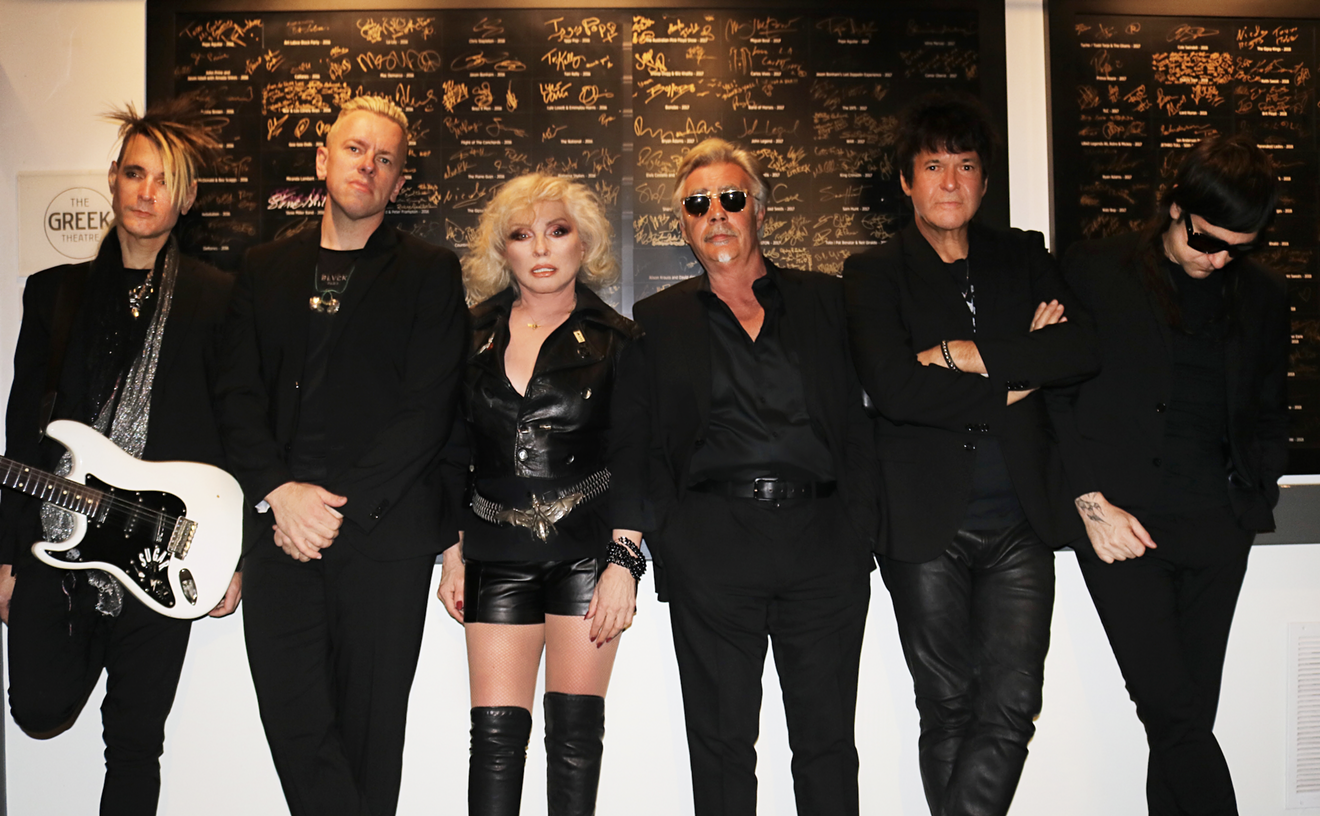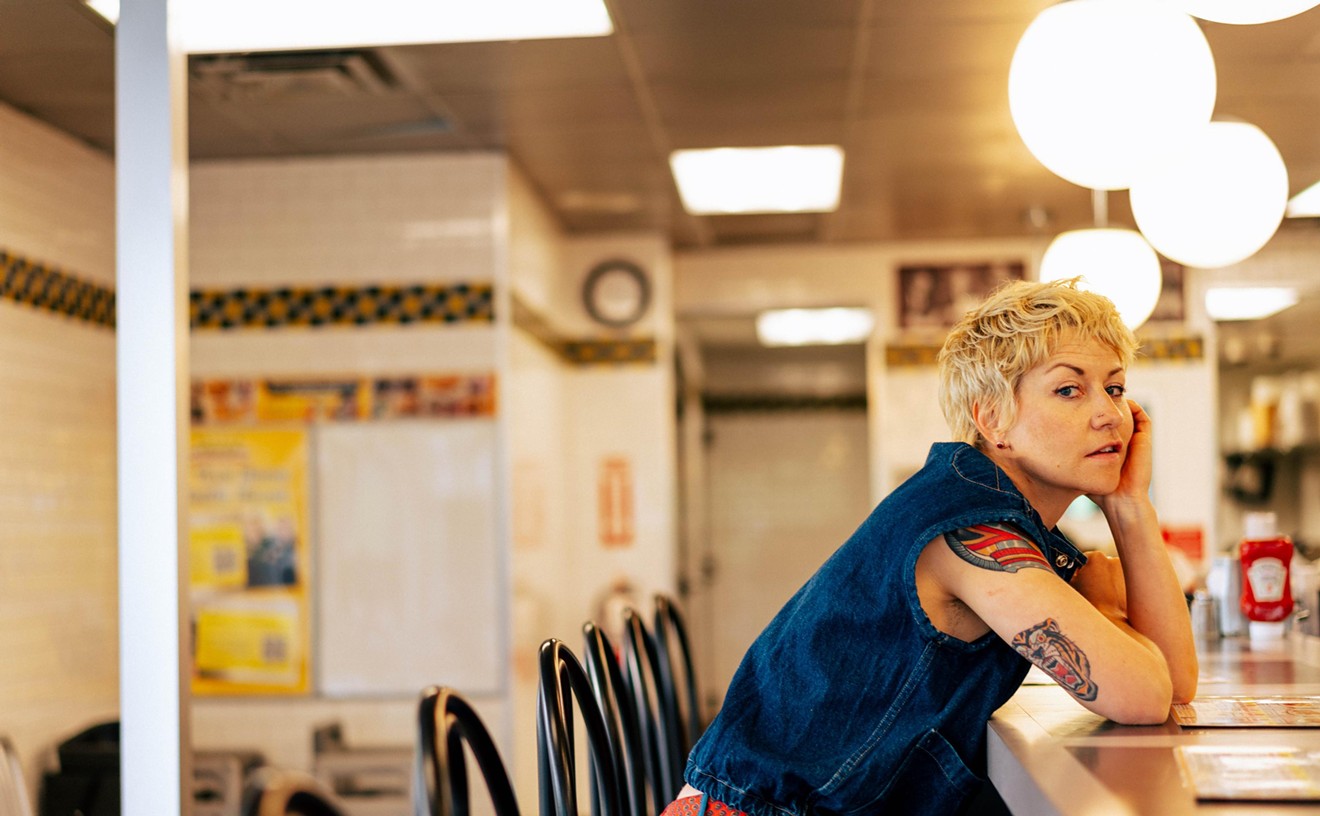If you're seeking Nirvana, you shall find it. It's all there. From the dark, diary-style lyrics to the tortured-growl delivery to the loud-quiet-loud dynamic, you can hear the influence Kurt Cobain has had on Andy Hull as you listen to the super-serious, 22-year-old Manchester Orchestra frontman howling about such heavy topics as hearing God whisper, his wife dying in a dream and the Second Coming. "Oh, God, yeah, big-time, yeah," he gushes, admitting his fondness for Nirvana. "We really wanted the record to have sounds of In Utero and of, like, Pinkerton, by Weezer. Those were our two records of reference."
Hull is by no means a member of the grunge generation. Nirvana's frontman ended his life, in fact, before the leader of this Georgia-based quintet had completed third grade. Regardless of age, however, Cobain's music would've been forbidden for Hull growing up. The son of a preacher, he lived in a household where secular music was strictly prohibited. Like so many youngsters raised on religion and in desperate need of a noisy guitar fix, Hull turned to Christian Contemporary acts like DC Talk and Point of Grace — "any really shitty band that my parents allowed," he remembers.
Then something in Hull's mom snapped and she started bringing home bands such as Radiohead and Foo Fighters. In his early teens, her son took an immediate interest, picked up a guitar and started penning songs. "It was just that the music that was around, that was considered cool, we didn't think was cool at all," he says recalling the music from the earlier part of this decade. "And then we discovered '90s alternative music."
Hull chose to be homeschooled at age sixteen, largely to concentrate on his songwriting. Three years later, he had created the material for I'm Like a Virgin Losing a Child, Manchester Orchestra's 2006 self-released debut disc. In April that year, Rolling Stone featured the band in its "Ten Artists to Watch" section. Favorable national press and relentless touring led to the act's inking a distribution deal with Sony. For its second album, Hull sought a producer to help take things to the next level. He settled on Joe Chiccarelli, whose resumé includes the Shins, the White Stripes and, most recently, helming My Morning Jacket's Evil Urges.
"There were about four guys that I had met prior to making the record," Hull says, noting that Chiccarelli was "the one guy I felt like I had no idea what our record would sound like if we did it with him. So that was the person we went with."
Chiccarelli concentrated on making the band sound simultaneously bigger and tighter. He accomplished this by acting as a taskmaster. The producer offered no feedback about Hull's lyrics, but had the band do up to twenty takes on each song in search of perfection. "It was a bastard," Hull recalls with a muted chuckle. "You know, it was really, really hard, but we got the outcome that we wanted. We trusted him in that way."
Good call. The resulting album, Mean Everything to Nothing, has proven to be something of a breakthrough. The first single, "I've Got Friends," has been all over modern-rock radio this year. The song offers a cryptic message about the obligations of friendship — or perhaps it's a meditation on the meaningless of friendship: Hull reminds us that regardless of how many friends we collect, we're still essentially alone.
"I wanted it to be the single just because I thought it was the quirkiest," Hull says with a sigh. "But there was never a plan that this was going to be a hit. We never expected anything to do that well."
Expectations aside, Hull found meaning from other parts of his life. In between the release of I'm Like a Virgin Losing a Child and Mean Everything to Nothing, he married his fiancée of three years, whom he met at Atlanta's Providence Christian Academy, where he also met a couple future members of Manchester Orchestra. On Mean Everything to Nothing's seventh track, the standout "I Can Feel a Hot One," the singer recalls a dream involving a car crash that takes his wife's life.
"The way that song is written is, in the first half I'm basically just describing touring and kind of my relationship with God and my wife," he explains. "And the end is about this dream I had about us being in the van and getting sideswiped and hit by a huge truck. I dreamed my wife was pregnant at the time and I lost her. But this life was inside her, and in some weird way I was able to celebrate that there was some new life coming with one ending."
Despite the highly somber subject matter, "I Can Feel a Hot One" found its way onto an episode of the CW television drama Gossip Girl. In the show, titled "Dark Night," several characters are going through breakups, making for a weird juxtaposition of song and storyline. Asked if he approved of its use, Hull diplomatically replies, "Sure, y'know, it was really nice of them to give us that great exposure. It definitely opened our band up to people who probably had never heard of us."
Perhaps for Hull, there's also satisfaction in sneaking a song about spirituality onto a show completely bereft of it. The young rocker has Jesus and God on his mind — a lot. "In My Teeth," another grabby Nirvana ringer, warns of Judgment Day. "Jesus is coming," Hull shrieks. "He acts my age, and he always looks the same." God speaks on the hidden track "Jimmy Whispers." "It's about my friend, Jimmy [Cajoleas], who plays in a band called Colour Revolt," Hull reveals. "He called me at 4 a.m. and said, 'Hey, I'm on the floor of a hotel in Utah and just want you to know I just had this dream. You and I were on our way to this lake where you could hear the voice of God whisper. And we were both trembling in fear on our way there about what He would say.'"
Hull had entered his teens when his father stopped preaching, but Christianity continued to rule around the kitchen table. Whereas other rockers — Kings of Leon, for instance — have righteously rebelled against their strict, Southern-Christian upbringing, Hull embraced his. He speaks lovingly of his parents and sounds content to continue exploring his relationship with God in song.
"It heavily influenced me," says Hull of his spiritual upbringing. "It influenced me in the same way as how someone who grew up on a farm would write about chickens. I grew up around it every day, and it's a big part of my life now, and it always will be."










